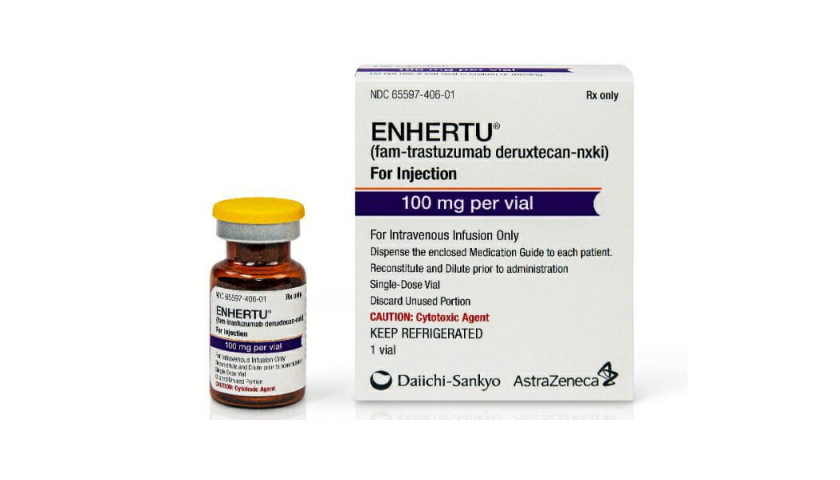Daiichi Sankyo, AZ close on EU approval of Enhertu for breast cancer

Daiichi Sankyo and AstraZeneca could be just weeks away from an EU approval for their antibody-drug conjugate (ADC) for breast cancer – Enhertu – which is tipped to become a multibillion-dollar blockbuster.
At its meeting last week, the EMA’s Committee for Medicinal Products for Human Use (CHMP) recommended approval of Enhertu (trastuzumab deruxtecan) for patients with unresectable or metastatic HER2-positive breast cancer, who have been previously treated with other anti-HER2 drugs.
Enhertu has already been approved for third-line use in HER2-positive breast cancer in the US at the end of 2019 and in Japan earlier this year, based on the results of the phase 2 DESTINY-Breast01 trial in 184 patients, which revealed that the drug shrank tumours in 61% of recipients.
Revenues from the drug in the first nine months of 2020 came in at $136 million – including $60 million in the third quarter.
Sales were recorded by Daiichi Sankyo, with AZ pocketing $63 million in profit sharing, and according to AZ the drug is now the most prescribed medicine in the third-line and fourth-line settings of HER2-positive metastatic breast cancer.
Enhertu consists of the antibody used in Roche’s blockbuster HER2 antibody Herceptin (trastuzumab), linked to a topoisomerase inhibitor that is toxic to cancer cells. Around one in five patients with breast cancer are considered HER2 positive, which is associated with aggressive disease, a high recurrence rate, and an increased risk of dying.
It works by latching on to HER2-positive cancer cells and delivering a payload to kill them, while ignoring healthy cells, in patients who have failed to respond to Roche’s HER2-targeting cancer drugs Herceptin, Perjeta (pertuzumab), and ADC Kadcyla (trastuzumab emtansine).
Kadcyla was once tipped to become the go-to treatment HER2-posiitve breast cancer when first line drugs like Herceptin/Perjeta had failed, but failed to meet the mark in pivotal trials, truncating its sales growth although it still managed to break into the $1 billion-plus bracket.
Daiichi Sankyo is confident Enhertu can top Roche’s ADC, and also expand the use of HER2 drugs into new cancers like HER2-positive gastric cancer – an indication that is under review by the FDA with a verdict due early next year – and HER2-positive non-small cell lung cancer (NSCLC).
The intention is to gradually position the drug for earlier-line use in breast, gastric and lung cancer, and eventually to try to expand its use into certain low HER2-expressing tumours.
If all the pieces fall into place it reckons peak sales could reach $4.5 billion, and there are plenty of analysts predicting that the drug could quickly breach the $2 billion-a-year threshold.
AZ's confidence in the potential of Enhertu is evidence from the terms of its late 2019 licensing deal with Daiichi Sankyo, which included a hefty $1.35 billion upfronting a deal that could be worth up to $6.9 billion if all the ADC’s development and sales objectives are achieved.













